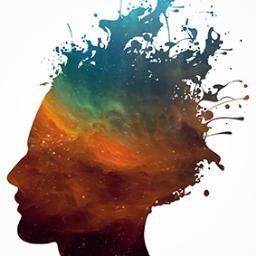
Contact information
chrystalina.antoniades@ndcn.ox.ac.uk
Please contact my administrator Brenda Cooley
brenda.cooley@ndcn.ox.ac.uk
Research groups
Biography
After obtaining a PhD at the University of Cambridge, she moved to Oxford and now holds an academic faculty position in the Nuffield Department of Clinical Neurosciences.
Art and Neuroscience
Over the last few years I have organised a number of public engagement activities. In the last 5 years I have developed the Art and Neuroscience Project with Dr Jim Harris at the Ashmolean Museum.
In 2019 I was awarded a Public Engagement with Research Seed fund grant for our project Picturing Parkinsons.
In 2016 I received an award in the inaugural Vice-Chancellor's Awards for Public Engagement with Research.

Colleges
Chrystalina Antoniades
A/Professor of Clinical Neuroscience
- Head of the NeuroMetrology Group
- Director of Graduate Studies, NDCN
- Dean of Reuben College
Neurological disorders, Parkinson’s and atypical PD, wearable technology and biomarkers
Research interests
AI digital biomarkers
A number of brain diseases affect various types of bodily movements, either producing unwanted movements such as tremors or reducing movement by making the patient stiff and slow, or sometimes both. One such condition is Parkinson’s disease (PD), a common neurodegenerative disorder affecting over 10 million people worldwide. Another is Progressive Supranuclear Palsy (PSP), a much rarer condition with more rapid progression. Despite these conditions having a very different pathological basis they can appear very similar in their early stages.
In our research clinics, we use a variety of quantitative experimental methods, based on precise measurement of subtle abnormalities of the speed and coordination of various movements such as saccades (fast eye movements), hand movements, and gait. This yields a large volume of data which we analyse using both classical machine learning techniques (ML) and deep neural networks (DL).
The aim of this work is to improve our ability to accurately diagnose conditions like PD and PSP at the earliest possible stage, and then monitor their progression. At present, all treatments for PD and PSP are symptomatic only, but multiple potentially disease-modifying drugs are in development. The tools we are developing to monitor progression will be critical in their evaluation in trials, and our diagnostics will then facilitate their use clinically at as early a disease stage as possible.
DPhil AND MSC Projects
I'm happy to consider applications from prospective DPhil and MSc applicants. Please visit our group website (NeuroMetrology Group) for further information about the projects we are carrying out currently.
Funding
- UCB Pharma
- Dementia and Neurodegenerative Research Network (DeNDRon)
- European Commission
- Wellcome Trust
- Merck
- NIHR
- EPSRC
Recent publications
-
Retinal morphological differences in atypical Parkinsonism: A cross-sectional analysis of the AlzEye cohort
Journal article
Patel S. et al, (2024), Biomarkers in Neuropsychiatry, 10
-
Differential effects of bilateral hippocampal CA3 damage on the implicit learning and recognition of complex event sequences.
Journal article
Miller TD. et al, (2024), Cogn Neurosci, 1 - 29
-
Daily steps are a predictor of, but perhaps not a modifiable risk factor for Parkinson’s Disease: findings from the UK Biobank
Preprint
Acquah A. et al, (2024)
-
Eye movements in Parkinson's disease: from neurophysiological mechanisms to diagnostic tools
Journal article
ANTONIADES C., (2023), Trends in Neurosciences
-
Using Smartphone Sensors for Ataxia Trials: Consensus Guidance by the Ataxia Global Initiative Working Group on Digital-Motor Biomarkers.
Journal article
Németh AH. et al, (2023), Cerebellum
-
Retinal Optical Coherence Tomography Features Associated With Incident and Prevalent Parkinson Disease.
Journal article
Wagner SK. et al, (2023), Neurology, 101, e1581 - e1593
-
Identification of motor progression in Parkinson's disease using wearable sensors and machine learning.
Journal article
Sotirakis C. et al, (2023), NPJ Parkinsons Dis, 9
News
 ©
New York Times 2023
©
New York Times 2023
Our work has been highlighted by the New York Times. Read the story here.


